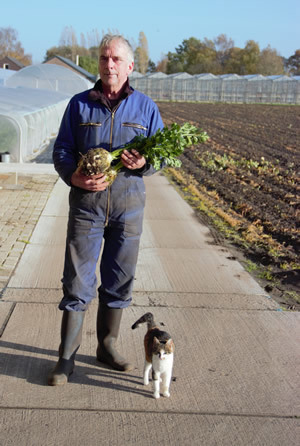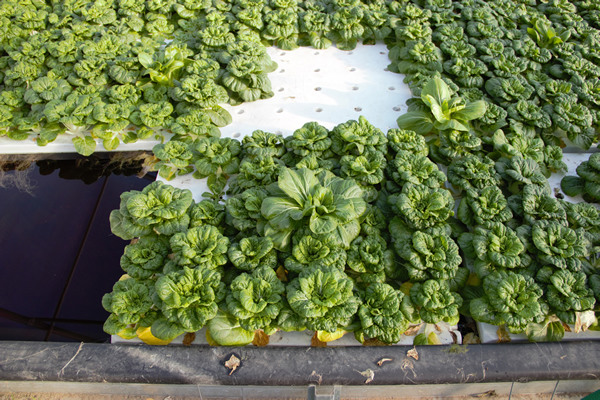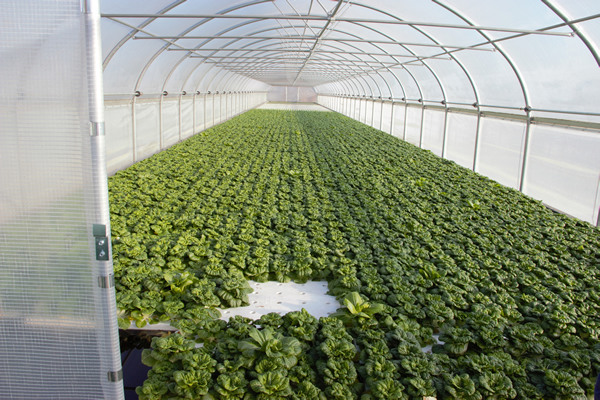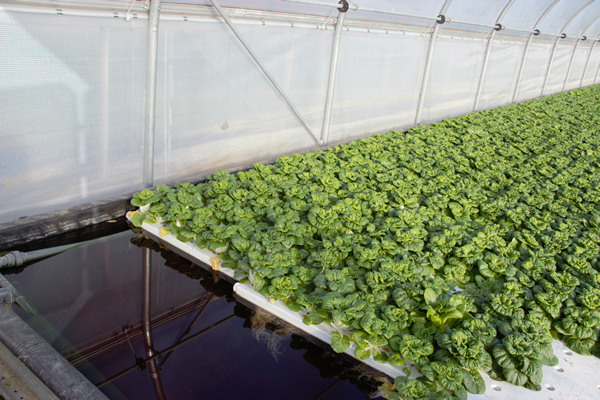 Innovating? "You invest - often a lot of money - in something new and then wonder if it will actually succeed. That keeps it interesting," begins The Greenery grower Johan Luijkx of Luijkx Vegetables.
Innovating? "You invest - often a lot of money - in something new and then wonder if it will actually succeed. That keeps it interesting," begins The Greenery grower Johan Luijkx of Luijkx Vegetables.
Whether it is about new cultivation methods or products or purchasing new machinery, and sometimes, you have no choice but to innovate to comply with government legislation.
Johan, his wife, Esther, and their son, Joost, have recently been experimenting with growing bok choy, Shanghai bok choy, and mini bok choy on water.
"It took several years to get the permits in place, so, officially, we only started this hydroculture last summer." They also grow spinach, celeriac, and savoy cabbage on their two farms in the Netherlands. They use peas and beans as rotation crops. "We don't do any work on those. Some else sows and harvests them; we just care for the crop," says Johan.

Trial and error
Fortunately, the Luijkx family did not have to wait and see what would happen for the past three years. "Doing something new taught us a lot. In the beginning, things went wrong with growing on water. You get the hang of it as you go along. We still manually remove the floats on which the plants grow from the water. We twist them, which can cause the plants to fall out or be damaged. And it takes a lot out of you - each float weighs about 10 kg. There must be a smarter way to do that," continues Johan.
Sustainable cultivation
What advantages does hydroculture have over soil cultivation? "You can continue growing for longer in water. There's no soil, so you don't have to rotate your crops. And, in the winter, the plants keep growing; it just takes a little longer. If it gets too cold, the plants can overshoot."
"These high temperatures for the time of year are very favorable for us. Also, this cultivation method requires less water - as crazy as that sounds - because you don't have to irrigate. Finally, because of the clean production, you need fewer plant protection products. So it's a sustainable crop," Johan explains.

Innovation and investment
Innovation (often) goes hand in hand with investment. In this case, in a new spinach harvester. "The machines we use in spinach cultivation are becoming outdated. They're constantly changing, which not only speeds up but also improves harvesting, with less damage to the plants." Another challenge is the new nitrate directives. "These mean, for example, we're no longer allowed to grow on ditch banks. Implementing that means you have to find a different way of working that's still profitable," says Luijkx.
Energy crisis, high fuel costs, tight labor market
There is an energy crisis, skyrocketing fuel prices, and a tight labor market. Also, growers cannot always deliver nursery plants on time. How much has Luijkx been affected? "We've not noticed much of anything so far. We sow the bok choy ourselves and propagate them in unheated planting tunnels."
"So, the gas shortage doesn't affect us. We installed more than 500 solar panels on the roof two years ago. We even have power to spare, although we're using noticeably more of it because of the water troughs. We use tractors, so we've felt the doubling fuel prices there," Johan admits.

Confident about the future
It is one thing after another. Does that cause concern? "No, our family business has been through quite a lot in its four generations of existence. Joost started his own company in 2018 and will succeed Esther and me in our company. We're already considering that when making important decisions. When Joost was five, he'd already told us he'd take over the business. Joost not only learns from us, we learn from him, too. That's how we stay innovative. In short, we're confident about the future," Johan concludes.
For more information:
Joost Luijkx
Luijkx Groenteteelt
Website: www.tuinderijluijkx.nl.
Website: www.verseoogst.nl/telers/mts-luijkx
